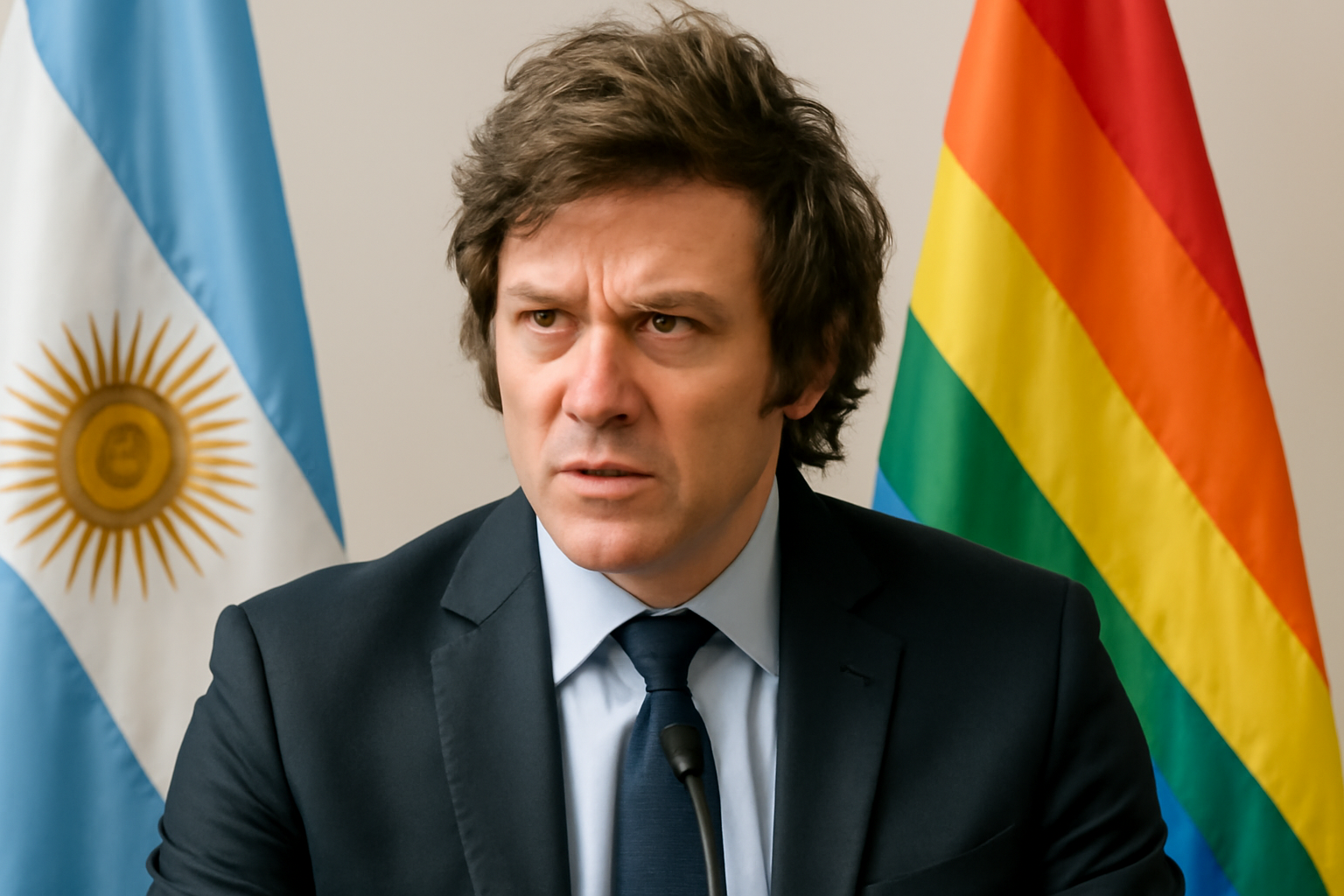
The Shift in Argentine Politics and Its Impact on LGBTQ+ Rights
The election of Javier Milei brought about significant changes in Argentina's political landscape, which have had profound effects on the country's LGBTQ+ community. Within his first year as president, Milei's administration has introduced both hostile rhetoric and concrete measures that have dismantled historic human rights protections.
Congressman Esteban Paulón, a dedicated LGBTQ+ activist, noted, "Milei's government fights on two fronts: symbolically, with an openly homophobic, lesbophobic, and transphobic discourse, and materially, through actions like the closure of the Ministry of Women, Gender, and Diversity, and INADI (the National Institute Against Discrimination, Xenophobia, and Racism)."
The shutdown of these vital institutions signaled a stark shift, indicating that diversity policies are no longer prioritized by the state. Consequently, LGBTQ+ individuals in Argentina have found themselves without crucial national advocacy resources. While some provinces have attempted to compensate for this absence, many have mirrored the national government's approach, leaving LGBTQ+ Argentines increasingly vulnerable.
Paulón expressed concern, stating, "What we are witnessing is not merely a rollback of public policies but a direct assault on the dignity of thousands who once felt the state's support."
Administrative Actions and Their Implications
One of the Milei administration’s initial moves was to disband the Ministry of Women, Gender, and Diversity and INADI. These actions, justified by Milei as efforts to curb "unnecessary public spending," resulted in the elimination of agencies that had been essential in promoting human rights and combating discrimination.
"Without these institutions, the LGBTQ+ community is left unprotected against violence and prejudice. Cases of discrimination that were previously addressed by INADI now often go unresolved," Paulón warned. "The implication is clear: our lives seem insignificant to this government."
Among the most concerning policies introduced by Milei is the allowance for employers to dismiss employees without legal repercussions. "Today, individuals can be terminated due to their sexual orientation or gender identity, with no recourse to reclaim their positions," Paulón cautioned.
This policy has particularly affected transgender individuals, who now face even greater employment challenges. Advocacy groups report that employers are exploiting this regulation to conduct selective firings, further exacerbating employment inequalities.
Growing Rhetoric and Societal Impacts
Paulón also highlighted the impact of anti-LGBTQ+ rhetoric perpetuated by Milei and several of his ministers. "Nowadays, people feel they can express discriminatory views without facing consequences," said Paulón, noting that ultraconservative and religious factions see Milei’s government as an ally.
While this rhetoric has not yet led to widespread violence, the potential remains. "We are not currently experiencing systematic violence as seen in other countries, but the threat exists," Paulón stated. "Every hateful word from those in power legitimizes violent actions."
Resistance and the Path Forward
In response to these challenges, resistance has emerged in various forms. Paulón and other opposition legislators have been working on legislative proposals to safeguard LGBTQ+ rights and counteract regressive measures.
"We refuse to remain passive. We have proposed concrete measures to ensure access to healthcare, inclusive education, and labor protections," Paulón affirmed.
Activists have also strengthened alliances with counterparts in neighboring countries, such as Brazil, Chile, and Mexico, while collaborating with international organizations that have voiced their concerns regarding Argentina's situation.
Despite the bleak outlook, Paulón remains optimistic. "Milei's tenure, like all democratic processes, will eventually end," he said.
Paulón emphasized that marriage equality and the transgender rights law are deeply ingrained in Argentine society, serving as barriers against further regressions. The current challenge, he suggests, is to maintain resistance, organize the community, and fortify international connections.
"We have an organized movement, tools for self-defense, and a society that is largely pluralistic and diverse. This challenging period will also pass," Paulón concluded. "The struggle for LGBTQ+ rights in Argentina is a poignant reminder that social gains are never guaranteed and that vigilance is essential to preserve our achievements."
Related Posts
Finding a Community in Unexpected Places: A Personal Journey Through Texas
On my latest business trip down in Texas, it felt like everything that could go wrong did. It all started with my flight from Los Angeles, which got hit with major delays. I ended up missing my connecting flight in Dallas, and it took a full day before I finally made it all weary and worn out in McAllen. I tried chalking it up as one those typical travel mishaps, but I couldn't help but wonder if [...]
Jonathan Bailey's 'Chic Glasses' Steal the Spotlight in Jurassic World Rebirth
Jonathan Bailey's fashion choice dazzles in Jurassic World Rebirth Fans can't wait any longer—the latest installment in our beloved Jurassic franchise, *Jurassic World Rebirth*, hits theaters soon. And guess what? It's not just about dinosaurs this time. Jonathan Bailey, whom we adore from *Bridgerton*, steps up as Dr. Henry Loomis, a charismatic paleontologist. But what's stealing his thunder? [...]
Martha Graham Cracker: A Night of Electrifying Drag Performance in Atlantic City
Experience a night like no other: Martha Graham Cracker's rock n' roll drag cabaret Get ready, because Martha Graham Cracker's about set Atlantic City's Anchor Rock Club on fire with her electrifying drag cabaret. With a voice that commands attention and a stage presence that's both vibrant and mesmerizing, she blends rock and roll with drag like nobody else. If you're itching a night jam-packed [...]